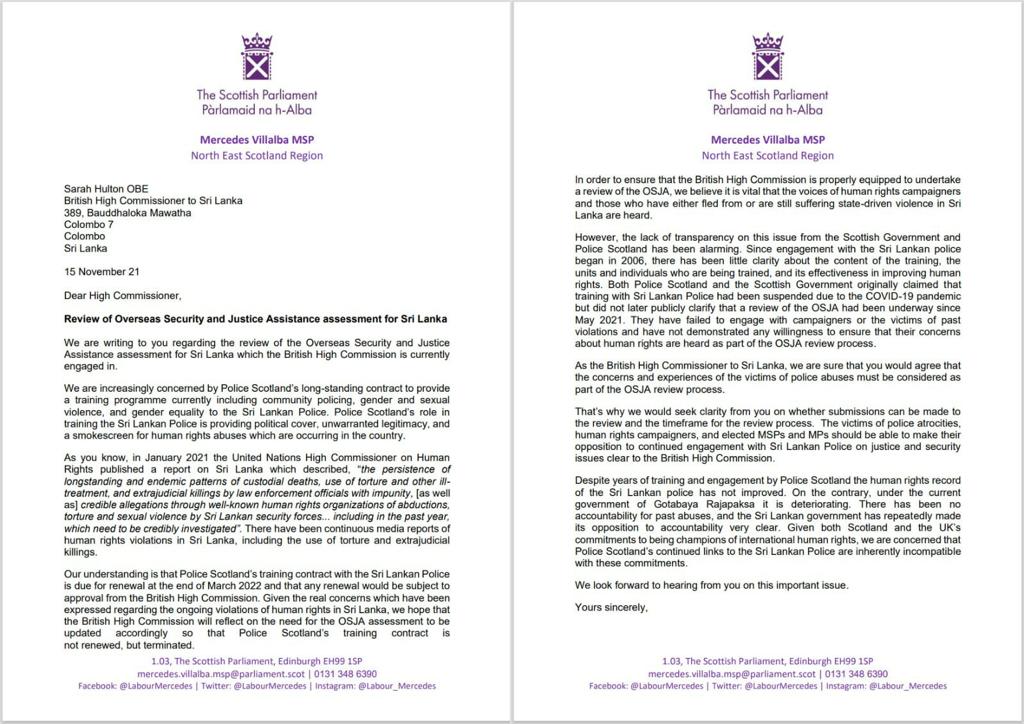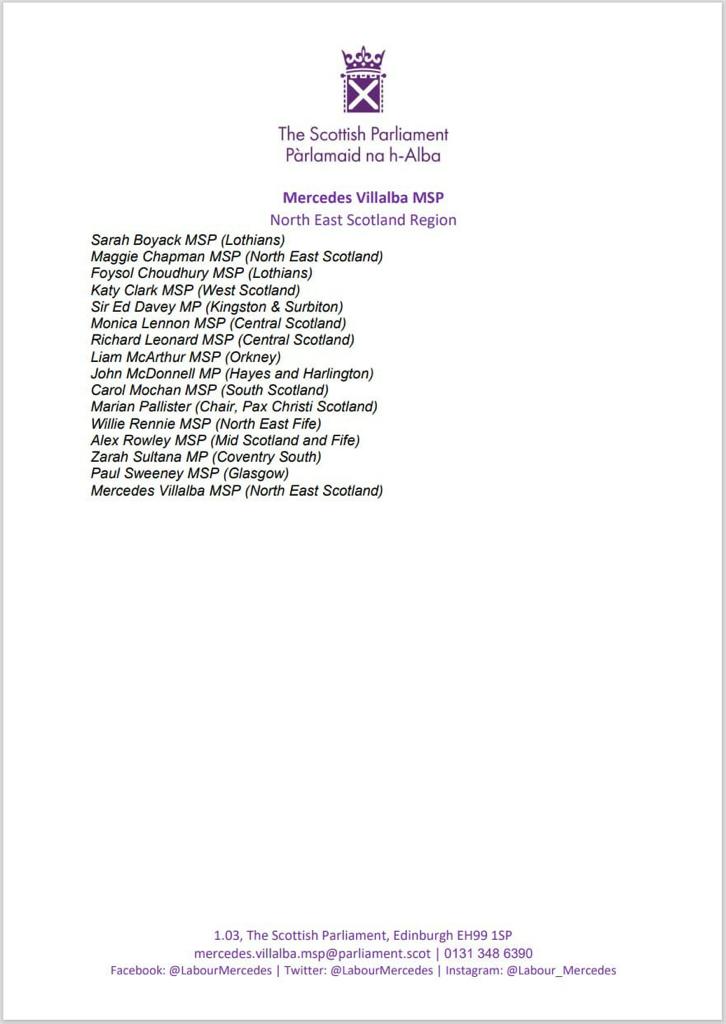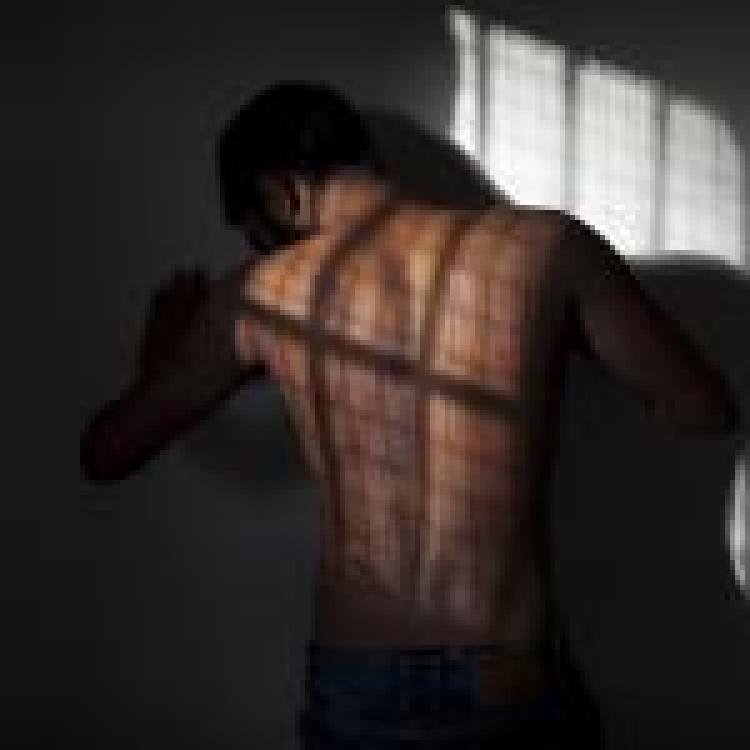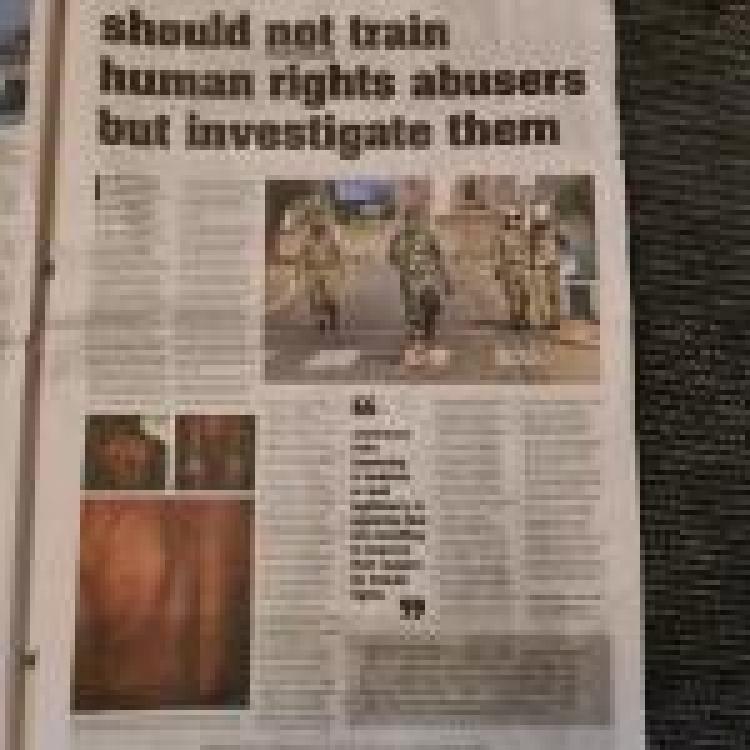![]()
Members of British and Scottish parliament, from across the political spectrum, have called on Police Scotland to end its police training program with Sri Lanka and for the British High Commission to heed the "voices of human rights campaigners and those who have either fled from or are still suffering state-driven violence in Sri Lanka".
In a joint letter addressed to Sarah Hulton, the parliamentarians note that Police Scotland's training contract with Sri Lanka is due for renewal at the end of March 2022, subject to approval from the British High Commission. The contract has been temporarily suspended pending a human rights assessment. The letter highlights growing concern over the human rights abuses committed by Sri Lankan police officers citing the UN High Commissioner for Human Rights report in January which detailed "the persistence of longstanding and endemic patterns of custodial deaths, use of torture and other ill-treatment, and extrajudicial killings by law enforcement officials with impunity, [as well as] credible allegations through well-known human rights organisations of abductions, torture and sexual violence by Sri Lankan security forces".
The parliamentarians further warned against Police Scotland's training being used as "political cover, unwarranted legitimacy, and a smokescreen for human rights abuses which are occurring in the country".
The letter further chided the Scottish Government and Police Scotland for a lack of transparency noting that since their engagement with Sri Lankan police in 2006, "there has been little clarity about the content of the training, the units and individuals who are being trained, and its effectiveness in improving human rights".
They further note that whilst the Scottish Government and Police Scotland had claimed that "training with Sri Lankan Police had been suspended due to the COVID-19 pandemic", they have not clarified that a review of the OSJA had been underway since May 2021.
"They have failed to engage with campaigners or the victims of past violations and have not demonstrated any willingness to ensure that their concerns about human rights are heard as part of the OSJA review process" the letter adds.
The parliamentarians stress the need for clarity on whether submissions can be made to the review and the time frame of the review process.
"Victims of police atrocities, human rights campaigners, and elected MSPs and MPs should be able to make their opposition to continued engagement with Sri Lankan Police on justice and security issues clear to the British High Commission" the letter maintains.
The letter concludes by stating:
"Despite years of training and engagement by Police Scotland the human rights record of the Sri Lanka Police has not improved. On the contrary, under the current government of Gotabaya Rajapaksa, it is deteriorating. There has been no accountability for past abuses, and the Sri Lankan government has repeatedly made its opposition to accountability very clear. Given both Scotland and the UK's commitments to being champions of international human rights, we are concerned that Police Scotland's continued links to the Sri Lanka Police are inherently incompatible with these commitments".
Read the full letter below.

The MPs and MSP who have signed the letter are listed below.

This letter was coordinated by a dedicated team of lawyers who have also taken on the cases of Tamil victims who are seeking legal recourse and reparations from Police Scotland. These lawyers are currently in briefings with these victims.




